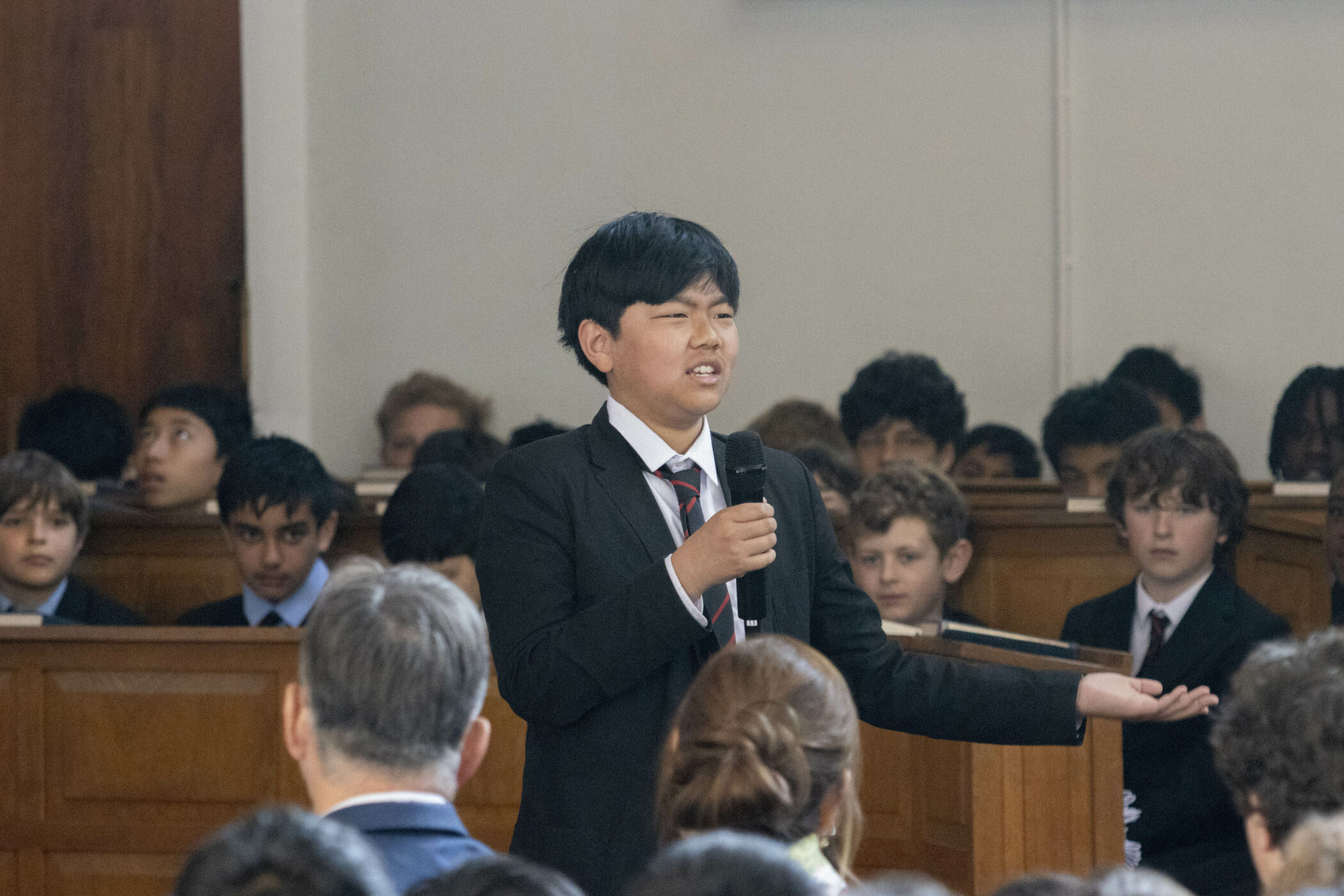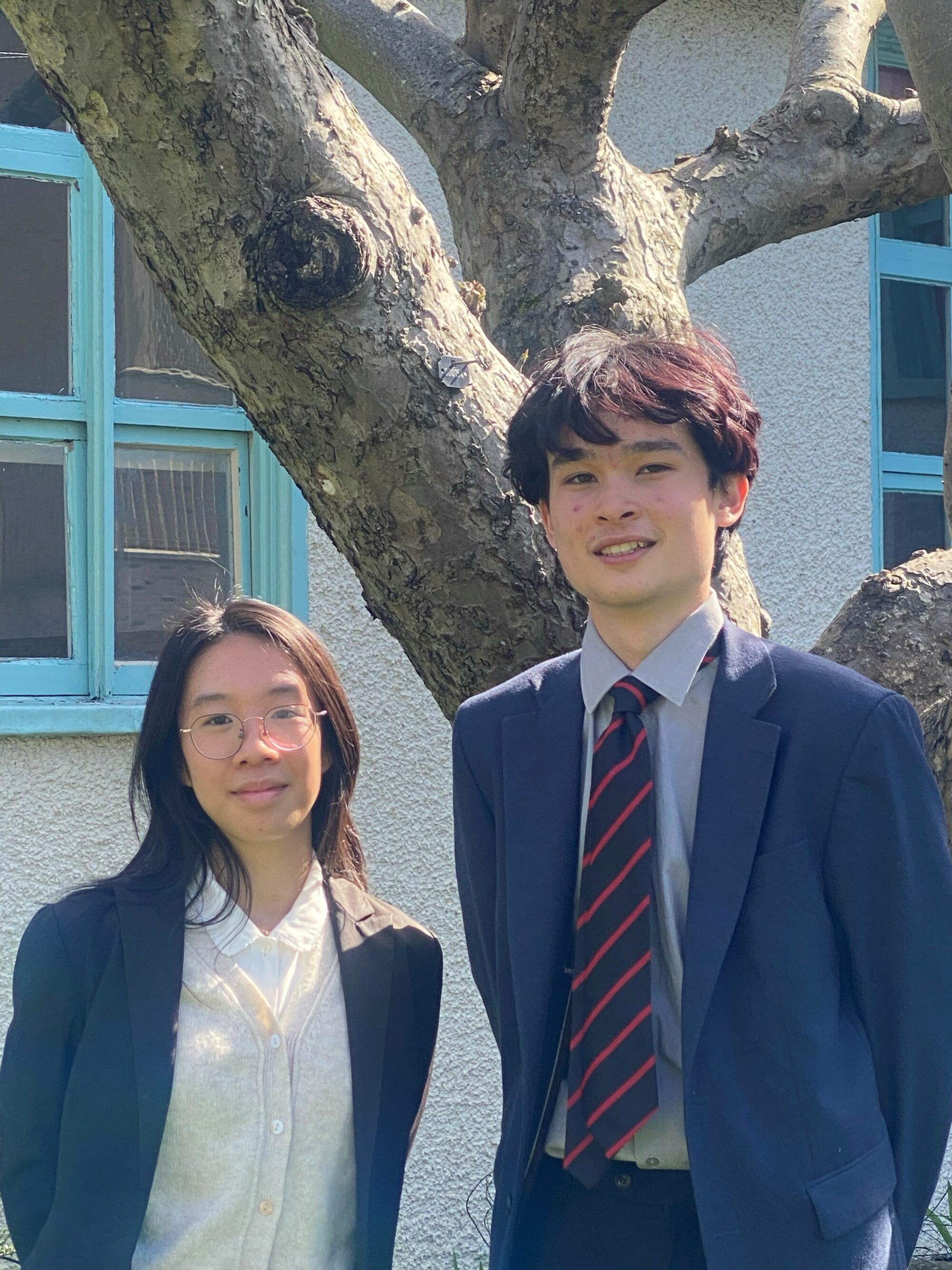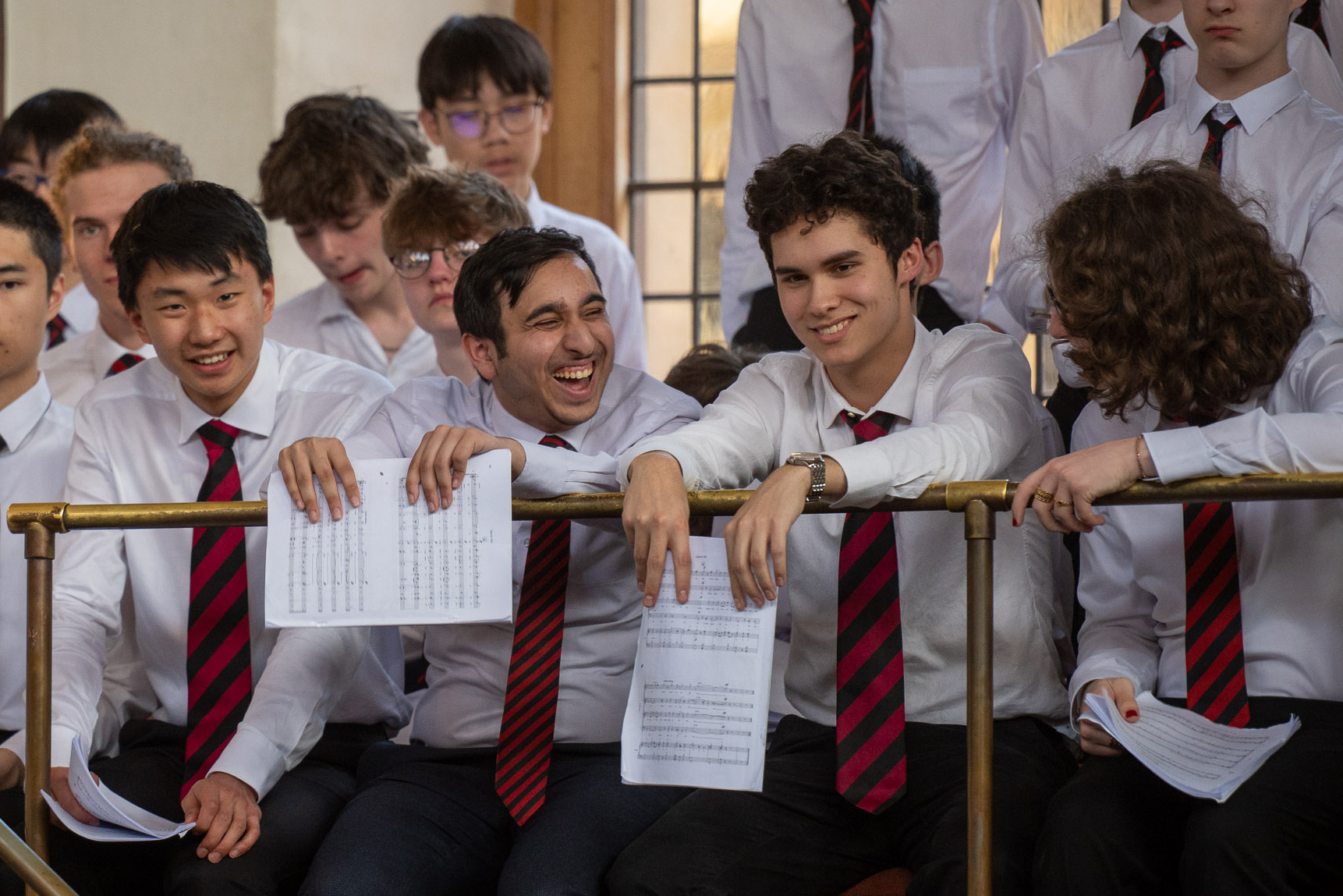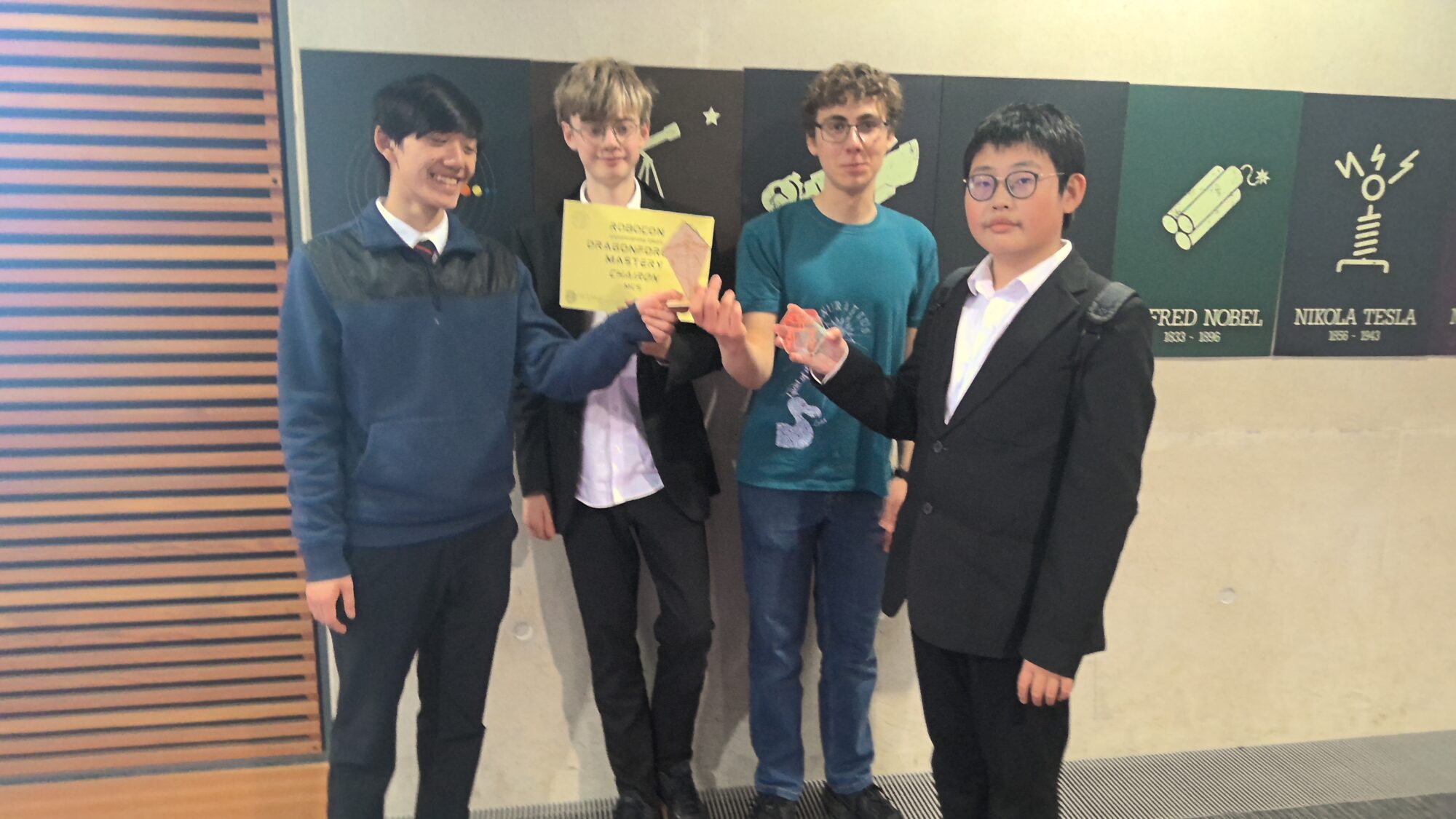At the end of 2020, MCS was informed of the passing of Old Waynflete George (Hansi) Newman aged 96 by his daughter, Joanna. Hansi came to MCS as a Jewish refugee from Vienna in 1938 aged just 14. You can find his obituary on our website here, as well as in the Telegraph here.
To mark Holocaust Memorial Day on 27 January 2021, we wanted to share his story and find out a little more about his schooldays at MCS. He is pictured here (back throw, third from left) in a school photograph discovered in the MCS archive:
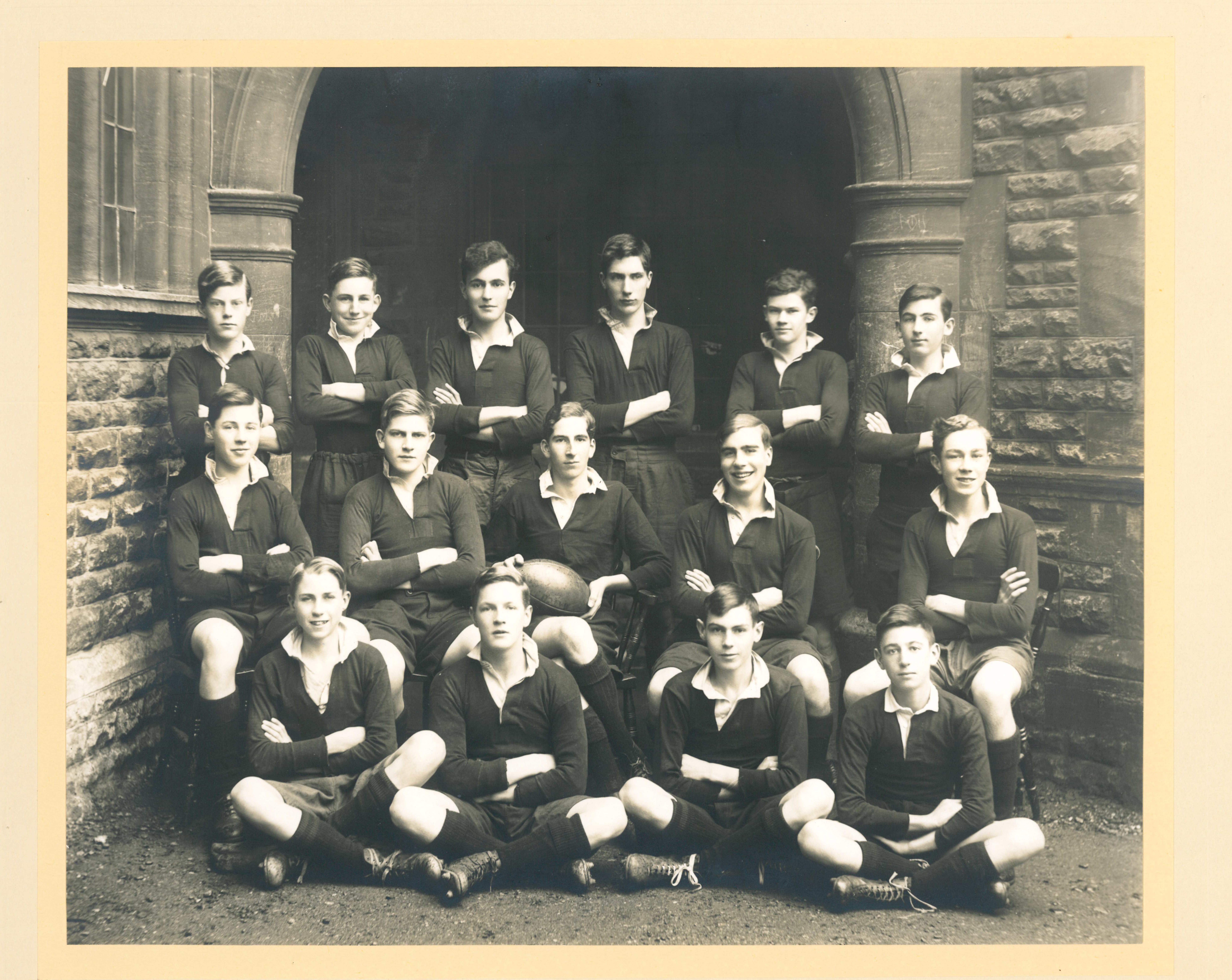
Also, his very first school report from Trinity 1938, in which he is noted as a “promising pupil”:
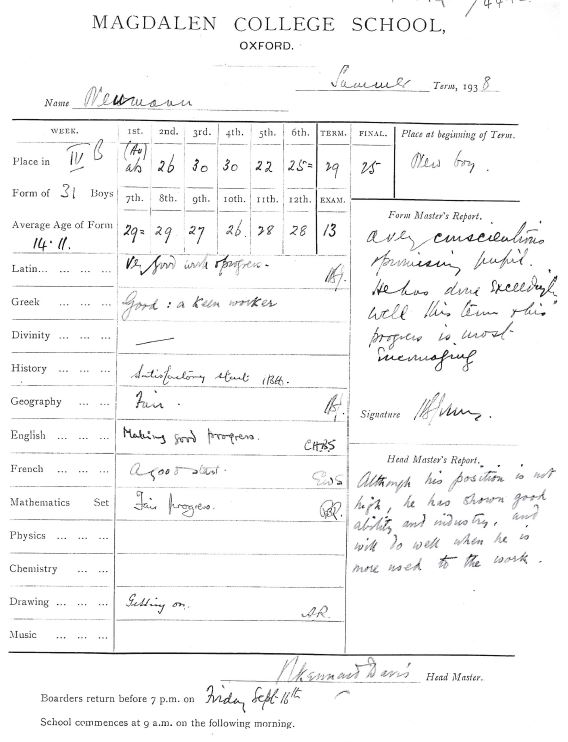
Here is a letter from Joanna, Hansi’s daughter, on his passing:
“It is with great sadness that I am writing to tell you that my beloved father George (Hansi) Newman, born Hans Neumann, has passed away in London aged 96. He arrived at Magdalen College School as a Jewish refugee from Vienna in 1938 aged 14.
With the passing of George Newman, MCS has lost one of the last of the Jewish pupils who arrived in the late 1930s and during the war. What the community of MCS did for these boys in the darkest days of the last century was so fundamental to the values of tolerance, civilisation and humanity, that I need to express this to you clearly.
"What the community of MCS did for these boys in the darkest days of the last century was so fundamental to the values of tolerance, civilisation and humanity, that I need to express this to you clearly"
Joanna, Hansi's daughter
Neumann H.G.R.M was expected to adapt overnight into an English-speaking schoolboy in a blazer and he was accepted by MCS unquestioningly. Meanwhile 980 miles away, his former school abruptly expelled its Jews and many of his former classmates and teachers would soon be murdered, others would collude in these murders. At 14 years old, my father was transplanted to a new world in Oxford, where he found himself amongst people who expressed no anti-semitism at all, as he clearly recalled when we discussed it in recent conversations.
"At 14 years old, my father was transplanted to a new world in Oxford, where he found himself amongst people who expressed no anti-semitism at all"
Joanna, Hansi's daughter
The school quite rightly has always taken this for granted, in your school recollections of the Nazi period, the welcoming of these boys from the Continent and what that represented may not be something that even needed to be spelt out explicitly. But for my father and the others at the time, it was not to be taken for granted.
With the advent of online teaching, I had intended to ask you if he could talk to the school and your GCSE / A Level history students over Zoom about the welcome that MCS gave to Jewish refugees. I regret that he died suddenly before I approached you about this. I did get as far as printing out issues of The Lily from your online archive and we went through them together a few weeks ago. He spoke at the debate in Michaelmas term 1940 “In the opinion of this House, dictatorships will not last a decade”, saying that a slow but sure democracy was preferable to a quick-minded dictator. His Latin and Greek was more advanced than his English peers when he arrived and he won classics prizes. The nascent school orchestra, which I see from The Lily was fairly newly-formed, welcomed the influx of European boys who could play instruments well. On June 14th 1940, he played a concerto in the Summer Concert and led the orchestra, also on the programme was a Kindertransport boy Walter Jellinek, who remained a lifelong friend.
On the opposite side of the same story, his Viennese school the Doeblinger Gymnasium has a wall of remembrance and has carried out historical research and testimonies of what happened and those who perished; my father visited there in his 90s and spoke to pupils and staff.”
 MCS ranks among the top independent secondary schools, and in 2024 was awarded Independent School of the Year for our contribution to social mobility.
MCS ranks among the top independent secondary schools, and in 2024 was awarded Independent School of the Year for our contribution to social mobility.

 28 of our pupils achieved 10 or more 8 or 9 grades in 2024.
28 of our pupils achieved 10 or more 8 or 9 grades in 2024.
 In 2023-24, MCS received over £448,000 in donated funds.
In 2023-24, MCS received over £448,000 in donated funds.